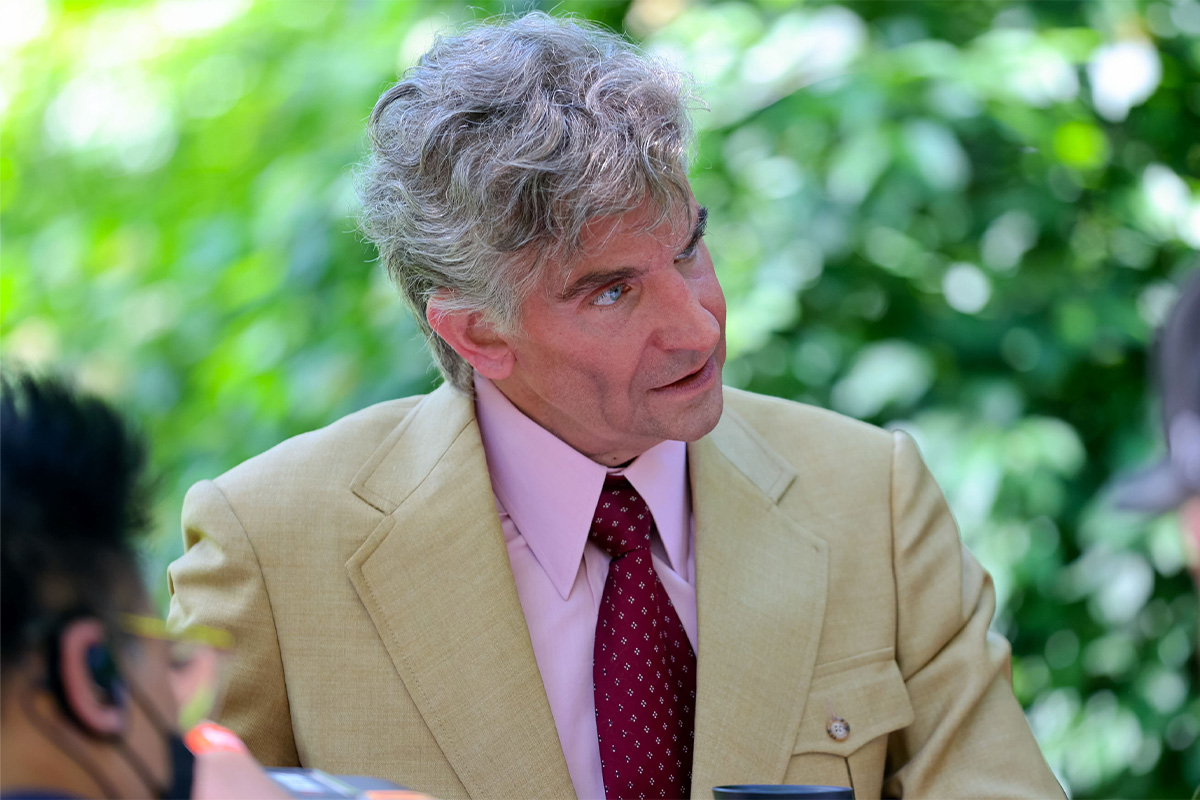On May 30, 2022, Netflix released stills from the upcoming film “Maestro,” a biopic about Jewish composer Leonard Bernstein which focuses on his relationship with Felicia Montealegre. The images, depicting Bradley Cooper as Bernstein and Carey Mulligan as his wife, immediately drew criticism. In the photos, Cooper, who is not Jewish, wears facial prosthetics — including a larger nose — in order to transform into the composer.
Various Leonard Bernstein projects have been in development for years. Jake Gyllenhaal, who is Jewish, had also been in conversation with the late composer’s estate. However, Cooper won the exclusive bid to co-write a film about the icon’s life, as well as direct and star in the movie. In a 2021 Deadline interview, Gyllenhaal commented that the “idea of playing one of the most preeminent Jewish artists in America and his struggle with his identity was in [his] heart for 20 some odd years, but sometimes those things don’t work out.”
Non-Jewish actors portraying Jewish figures, sometimes beating out Jewish performers, has long been a prickly issue (Felicity Jones as Ruth Bader Ginsburg in “On the Basis of Sex,” Rachel Brosnahan in “The Marvelous Mrs. Maisel,” Helen Mirren in the upcoming film “Golda”… the list goes on). The fake nose on Cooper only added insult to injury and has led to accusations of “Jewface.”
Twitter user @TheTonightSho wrote, “‘jews run hollywood’ and yet i have to see leonard bernstein played by bradley cooper in an obscene gigantic nose prosthetic. cool.” Referring to Cooper’s casting and transformation for the role, Batya Lewbel tweeted, “I’m just begging Hollywood… [to] just walk into my local shul and find a dude that looks like Leonard Bernstein.”
"jews run hollywood" and yet i have to see leonard bernstein played by bradley cooper in an obscene gigantic nose prosthetic. cool.
— shoshana gottlieb || שושנה (@TheTonightSho) May 31, 2022
Apparently Bradley Cooper himself is directing this. Leonard Bernstein was Jewish and I'm just begging Hollywood as an industry when you need to cover a goy in this much latex just walk into my local shul and find a dude that looks like Leonard Bernsteinhttps://t.co/CdkUYVImhg
— LadyKnightTheBrave (@BatyaLewbel) May 31, 2022
While some may think the term “Jewface” is new, problematically coined by comedian Sarah Silverman (who, ironically, is set to appear in “Maestro”), it actually dates back to the 1800s, according to the YIVO Institute for Jewish Research. And the concept of non-Jews dressing up as Jews for entertainment is far older. Beginning in the 16th century, the “stage Jew” became an important character in European theater. Early examples include Shylock in William Shakespeare’s “The Merchant of Venice” and Barabas in “The Jew of Malta” by Christopher Marlowe. These characters were almost always villains or fools, and they were always portrayed by non-Jews.
In “The Jews and British Romanticism,” Dr. Michael Ragussis explains that during the Georgian era, “the stage Jew often existed as a farcical exaggeration that was easily mimicked at masquerades and in street theater.” Later, in the United States, the stage Jew became a common character in vaudeville performances, in which non-Jewish actors would mockingly portray Jews using outlandish, stereotypical costumes, thick Yiddish accents, and… fake noses. It was during this time that the term “Jewface” originated.
With this history in mind, it’s surprising that no one behind the scenes of “Maestro” paused to consider the implications of putting a non-Jewish actor in these prosthetics.
The question of whether performers can play characters with identities different from their own is worth exploring. In some situations, it’s complicated. In others, the answer is very clear. Should white actors portray people of color, for instance? Absolutely not.
In this specific case, however — in which a non-Jewish actor is wearing arguably offensive prosthetics to play a Jew — we can look to the aforementioned history of Jewface to understand why the casting in “Maestro” feels off to some.
Judaism is both a religion and an ethnicity. There is no one way to look Jewish: Jews can be of any race or ethnicity, with light or dark skin, eyes, and hair. However, ethnically Ashkenazi, Sephardi, Mizrahi and other Jews do often share certain physical features. If those features are so important to a character’s identity or to a story, then an actor with those features should simply play the role. If, in “Maestro,” mimicry was the goal, Cooper should have found a performer who looks like Bernstein. Ethnicity is not a costume, not something to be conjured out of latex.
On Twitter, Emily Hahn, MD, noted, “I’ve seen Leonard Bernstein in person. There is nothing remarkable about his nose and it is not a definitive facial feature that is part of his narrative. A prosthetic nose might as well be horns.”
I’ve seen Leonard Bernstein in person. There is nothing remarkable about his nose and it is not a definitive facial feature that is part of his narrative. A prosthetic nose might as well be horns. https://t.co/d190E9SmZm
— Emily Hahn, MD (@EHahnMD) June 1, 2022
In 2016, viewers similarly took issue with Zoe Saldana’s casting as Nina Simone in a biopic that premiered that year. Although Saldana is Black, she wore a prosthetic nose and darkened her skin to play the famous singer. Simone’s family declined to endorse the film, and Saldana later said she regretted taking the role. For many, the same sorts of critiques apply in the case of “Maestro.”
Regardless of the intention (no doubt to honor and faithfully represent Bernstein), the history of Jewface and the impact of Cooper’s involvement also matter.
I’m not here to argue that non-Jews can’t write stories that include Jews in them or to debate whether non-Jewish actors can play Jewish characters. But to me, something just doesn’t feel right about a production “transforming” a non-Jewish performer into a Jew using a fake nose — a loaded symbol with the weight of centuries of caricature behind it.
Is the fake nose integral to the plot of “Maestro”? Is it really necessary? Was it impossible to find an actor who looks like Bernstein to avoid playing into the history of non-Jews cosplaying Jews on stage and screen?
I’d wager the answer to those questions is “no.”



